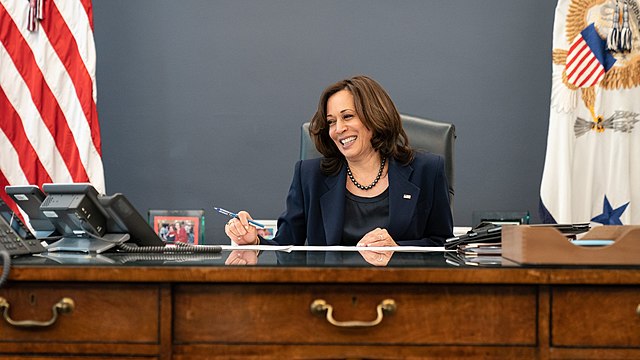It is good for candidates to try to win the election

JMM on the complaints from the press that Harris isn’t doing enough press hits or hasn’t immediately put up a policy website:
To start, we should note that major national campaigns take months, even years, to put out fleshed-out policy programs. Those are hugely complex projects with myriad policy, coalitional and campaign dependencies. You’re not going to do that from a cold start in three weeks. But there’s a different point here. For years on this site I’ve discussed the Democrats’ problem with what I’ve called “policy literalism,” the idea that campaigns are won or lost on the basis of fleshed-out policies ready to be implemented on day one as opposed to directional signals about values and goals. Of course, there’s nothing wrong with having those fleshed-out policies. That’s one of the good things about Democrats. There’s a big cultural priority on policy work in Democratic politics. Those are important when it comes time to govern, and you can routinely see that in how each party governs. In Republican politics, policy is often backfill to service campaign slogans. And it shows. Having the people who do the serious policy work is great and important as long as you don’t confuse yourself into thinking it’s part of campaigning. It’s not. Campaigning is about directional signals about values and goals. Way too often Democrats and Democratic campaigns get confused about this. “We have all these great policy proposals. And when we explain them to people, they say they support them. So how did we lose the election?”
That’s not what campaigns are about. Repeat it to yourself three times. That’s not what campaigns are about.
Even that line above in the Hamby quote sets out something very clear: she is speaking about protecting Social Security and Obamacare, supporting labor unions. Hamby was talking about economic policy, but the Harris campaign is also saying just as clearly: protect abortion rights everywhere, continue Biden’s climate policies. She also keeps saying on the campaign trail that she’ll sign the border bill that Donald Trump killed earlier this year. Not everyone in the Democratic coalition is crazy about that. But that’s very specific, both directionally and in policy terms. And let’s be frank: she’s the incumbent Vice President. Unless there are specific statements to the contrary, we should and the public unquestionably does assume her policies will be generally the same as Biden’s. Harris’ central campaign slogan and message is “freedom,” which she is using as a catch-all to bring together fighting right-wing efforts to restrict personal privacy and autonomy (abortion), the MAGA threat to democratic government itself and support for bread-and-butter economic policies (unions, Obamacare, tax support for families with kids, etc.) which allow working people to live dignified and secure lives. This is a rhetoric that is progressive and rooted in ideas venerated in American political culture. Many have recommended something like this. Pete Buttigieg, interestingly, was one of the first I saw employing this rhetoric way back when he was still a little-known midwestern mayor. Now Harris is doing it. It’s working.
We could make a separate point that it’s risible to be demanding policy particulars from Harris when Trump changes his policies from one day to the next. Even calling them “policies,” as opposed to impulsive grunts, is charitable. At present, Trump’s main’s policy action is disclaiming Project 2025, which until a few months ago was widely believed to be his de facto governing document, as embraced as such by the campaign itself. But we don’t need to grade Harris on a Trumpy curve. Presidential campaigns are about defining choices about the direction of country. Having people getting excited about your campaign and your vision about the future of the country is a good thing, not some frivolous sugar high. I’m sure Harris will do some sit-down interviews. But we should remember that the purpose of a campaign is to win an election. It’s not an exercise in civics education. Campaigns do interviews when they want to get a message out or in response to popular demand. Journalist push for interviews. That’s their job. Campaigns respond when they deem it in their interests.
One thing Harris understands is that the purpose of the demand for interviews/policy websites is not to inform the public about the policy consequences of the election, it’s to cherry pick something that can be used to build a “she’s a flip-flopper” of “she’s a kooky liberal” story around. And when she talks about policy the complaints won’t end because you can always demand more detail:
We’ve got a guy who’s been running for president for NINE SOLID YEARS with a healthcare plan called “I’m gonna announce it in two weeks”… and HARRIS is the one who's “light on detail”? pic.twitter.com/aZfMmh2kOS— Ben Wexler (@mrbenwexler) August 14, 2024
Harris will have a policy website and will start doing more press interactions, but it’s healthy to remember that there’s no High Civics going on here — reporters and politicians both have their own interests, and reporters obsessing with gotcha process questions don’t incentivize politicians to talk to them. And I’m also not sure editors and reporters who smoothly transitioned from “literally any stolen email involving a political campaign is national news” to “the real story is the ratfucking, we won’t cover the emails” with zero explanation are in a good position to talk about Sacred Established Norms.


